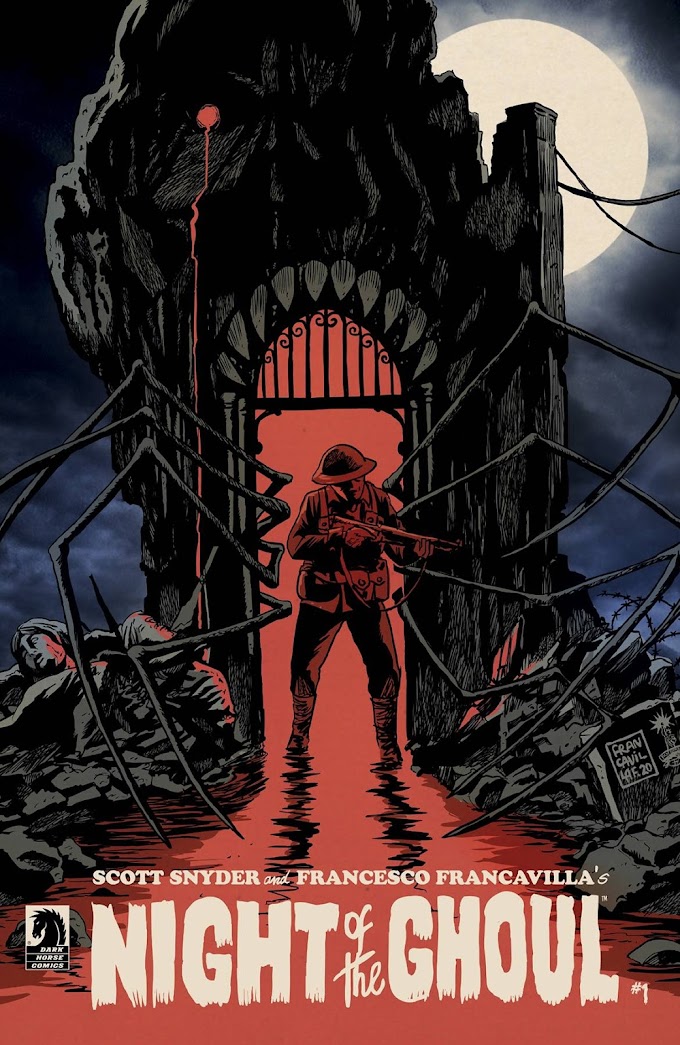 Written by Mi-Kyung Yun
Written by Mi-Kyung YunIllustrated by Mi-Kyung Yun
Dark Horse
I almost read enough Dark Horse manga to give it its own tag separate from the western comics Dark Horse publishes. I was talking to my wife about it, and I realized the list is quite long, especially if you add the titles I read before doing reviews.
Bride of the Water God, however, is unlike any of the other Dark Horse titles I've sampled. It's not a comedy, like Oh My Goddess. It has no samurai, at least none that I can see. There isn't a pile of corpses in sight, though there is a bit of sacrifice.
Perhaps it's because it's a manhwa, but Bride stands out from the others in the Dark Horse library due to its storyline. However, that's not a bad thing at all. It only shows that whoever helps pick licenses for the company not only has broad taste, but very good taste as well!
Bride begins in a Korean town that feels they have angered Habaek, the Water God. In order to appease the cruel monster, they pick a girl to sacrifice. Soah is the "lucky" girl, and she soon prepares to die. Fate has other plans, however, as it seems the Water God is not quite the being everyone expects him to be. Soah is instead transported to another world, where gods walk through unending palaces and creatures lurk in unsuspecting forms.
Habaek himself turns out to not only not be a monster, but a child-like deity, seemingly with whims to match. He refuses to grant the aid requested, acts harshly to Soah, his bride, and is surly with the other gods and beings around the palace. Soah tries her best to settle in and deny her longing for home. But just as she is lying to everyone about her happiness, Habaek is lying to her about his own personality. When the Water God's mother shows up, tensions rise and sets up a cliffhanger that should drive the action of volume two.
I don't usually mention back cover blurbs, but this one mentions that Ms. Yun got a "Best New Artist" award in 2004, and the contents of Bride easily show why. I've not read a lot of manhwa so far, but most of what I've read has been absolutely gorgeous from an artistic perspective. The trouble is that the stories don't always match. Bride is by far the best manhwa I've read so far, combining the detailed and intricate line work that I like so much in "Tarot Cafe" with a storyline that is both compelling and well-plotted.
Yun's details, particularly in the character's clothing, buildings, and facial close-ups are amazing. Even my wife, who is not a fan of manga/manhwa, liked several of the full-page illustrations I showed her. I don't know how long it takes Yun to draw her pages, but whatever time she invests is well worth it. Even if Bride wasn't a great story, I'd keep reading it to peruse the art. In fact, after finishing the book, I went back and re-read pages just to look at the artwork. Given that I am a story-first, art second style of reader, that's notable. Those who read comics primarily for the art will be in heaven.
Fortunately, however, the story in Bride is a strong one, based on an old Korean myth. That could be part of why I liked it so much. (As regular readers of my reviews know, I am a sucker for Western myth, so now I have a whole other continent of cultural myths to explore!) Yun takes the idea and runs with it into what could be best described as a shojo-like story. The heroine, Soah, is an outsider who is linked to one boy but has feelings for another. People are concealing their true motives like hiding easter eggs, and the authority figures (in this case, the water god's mother) only serve to make the situation worse.
It's a fairly familiar situation, but Yun spins it into a world of gods, further throwing off the power dynamic between the couple. Soah could be killed by any of those around her, merely by their inaction if nothing else. She is clearly a new toy for some of the gods, who are all too eager to engage in the same petty gossip and hurtful games as a standard shojo high school. Yun uses this to good effect in the story, and I can't wait to see how the dynamics set up in the first trade are explored as time goes on.
I also like the little touches about the idea of gods impacting on the lives of mortals. Habaek is as petty as any Greek god, and he really does control the rain. The other gods haven't done anything--yet--but it's clear that they could do as much (if not more) than Habaek but seem to prefer hanging out instead. It's another angle of the story that I will be interested to see progress over time, and whether or not having a human living among them will change their perspective.
Those are just a few of the layers Yun places in the story, and I'm other readers can point to pieces that I missed which intrigue them. (I didn't even touch on the mystery of the water gods's past brides, a little snippet that's introduced as an aside but is sure to have a big impact later.) That's part of what makes Bride so good--the basic idea is so simple, but the execution makes it so much more. It's going to be really hard to wait for the library to bring me volume two. In fact, I wonder if the library gods would accept a sacrifice...





![Sweat and Soap [Ase to Sekken] by Kintetsu Yamada](https://blogger.googleusercontent.com/img/b/R29vZ2xl/AVvXsEgMnQltxjWqGS1_duhCp9Er1a0NbALuSFrqvjaV4_PjN_w67xCGghYt-l0qKyqTH7Ei7gbq_mxVq8aPAuOiyaArwAMLJWhpGmOYaARUBnwvjmv2-ZIe20m_zR5CvKnPdI6US_AuOnmi3gSX/w680/57525895-BA7E-4EF8-9FE4-89F9C164E1A4.jpeg)

